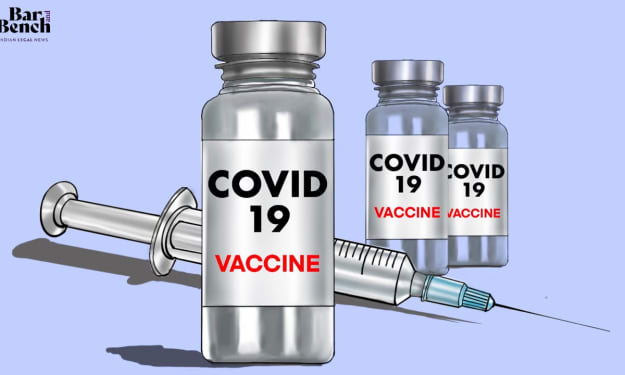
Basal Metabolic Rate (BMR) is the number of calories a person needs to perform basic physiological functions such as breathing, circulation, and cellular activities, while at rest. Calculating BMR is an essential step in understanding how many calories you need to consume daily to maintain your weight, lose weight, or gain weight. Here's how to calculate BMR.
Determine Your Gender: Men and women have different BMRs, so it's crucial to know your gender before you calculate BMR.
Measure Your Weight: Weigh yourself in pounds or kilograms, depending on what you are comfortable with.
Calculate Your Height: Measure your height in inches or centimeters.
Determine Your Age: Knowing your age is also critical in determining BMR.
Use the Harris-Benedict Equation: The Harris-Benedict equation is the most commonly used formula to determine BMR. Here is the equation for each gender:
Men: BMR = 66 + (6.23 x weight in pounds) + (12.7 x height in inches) - (6.8 x age in years)
Women: BMR = 655 + (4.35 x weight in pounds) + (4.7 x height in inches) - (4.7 x age in years)
Convert to Metrics: If you prefer to use metric measurements, you can convert the above formulas. For example, to convert pounds to kilograms, divide the weight by 2.2. To convert inches to centimeters, multiply the height by 2.54.
Calculate Daily Caloric Needs: To determine the number of calories you need to consume daily, multiply your BMR by a factor that corresponds to your activity level. Here is the activity factor:
Sedentary (little or no exercise): BMR x 1.2
Lightly active (light exercise or sports 1-3 days a week): BMR x 1.375
Moderately active (moderate exercise or sports 3-5 days a week): BMR x 1.55
Very active (hard exercise or sports 6-7 days a week): BMR x 1.725
Extremely active (very hard exercise or sports & physical job or 2x training): BMR x 1.9
In conclusion, calculating BMR is a simple process that can give you a better understanding of your caloric needs. By knowing your BMR, you can make informed decisions about your diet and exercise routine, helping you reach your weight goals.
Now that you have calculated your BMR and daily caloric needs, it is important to understand how to use this information to achieve your weight goals. Here are some tips for using your BMR and caloric needs to maintain, lose, or gain weight:
Maintaining Weight: If you want to maintain your weight, you need to consume the same number of calories that you burn daily. The number of calories you need to consume daily is equal to your BMR multiplied by your activity factor.
Losing Weight: To lose weight, you need to consume fewer calories than you burn daily. A safe and sustainable rate of weight loss is 1 to 2 pounds per week, which can be achieved by reducing your daily caloric intake by 500 to 1000 calories.
Gaining Weight: To gain weight, you need to consume more calories than you burn daily. Aim to increase your caloric intake by 500 to 1000 calories per day to gain weight at a rate of 1 to 2 pounds per week.
It's important to note that weight loss and gain are not just about calories, but also about the quality of the food you consume. Eating a balanced diet that includes a variety of whole foods, such as fruits, vegetables, whole grains, lean proteins, and healthy fats, will help you reach your weight goals and maintain optimal health.
Additionally, it is crucial to remember that everyone is unique, and BMR and caloric needs can vary from person to person based on factors such as body composition, muscle mass, and hormone levels. It is always recommended to consult a healthcare professional before making any significant changes to your diet and exercise routine.
In conclusion, understanding your BMR and daily caloric needs is a critical step in achieving and maintaining a healthy weight. By using this information to make informed decisions about your diet and exercise, you can reach your weight goals and maintain optimal health.
It's also important to note that BMR alone does not determine a person's overall metabolism, as it only takes into account the energy used by the body at rest. A person's total daily energy expenditure (TDEE) is a more comprehensive measure of metabolism, as it takes into account the energy used for physical activity, digestion, and other bodily functions.
To determine TDEE, you can use online calculators or consult a healthcare professional. TDEE is calculated by multiplying BMR by a factor that represents your activity level. This factor can range from 1.2 (for sedentary individuals) to 1.9 (for highly active individuals) and provides a more accurate representation of the total energy a person uses in a day.
It's also important to remember that weight loss and gain are not just about calories, but also about the quality of the food you consume. Eating a balanced diet that includes a variety of whole foods, such as fruits, vegetables, whole grains, lean proteins, and healthy fats, will help you reach your weight goals and maintain optimal health. Additionally, drinking enough water, getting enough sleep, managing stress, and incorporating regular physical activity into your routine are all important factors that can affect metabolism and overall health.
In summary, calculating BMR and TDEE are important steps in understanding your caloric needs and achieving your weight goals. However, it is important to remember that there is much more to metabolism and weight management than just numbers and calculations. A holistic approach that includes a balanced diet, regular physical activity, adequate hydration, good sleep, and stress management is necessary for optimal health and wellness.
About the Creator
Nasir Ahmad
Its Me Nasir Here






Comments
There are no comments for this story
Be the first to respond and start the conversation.